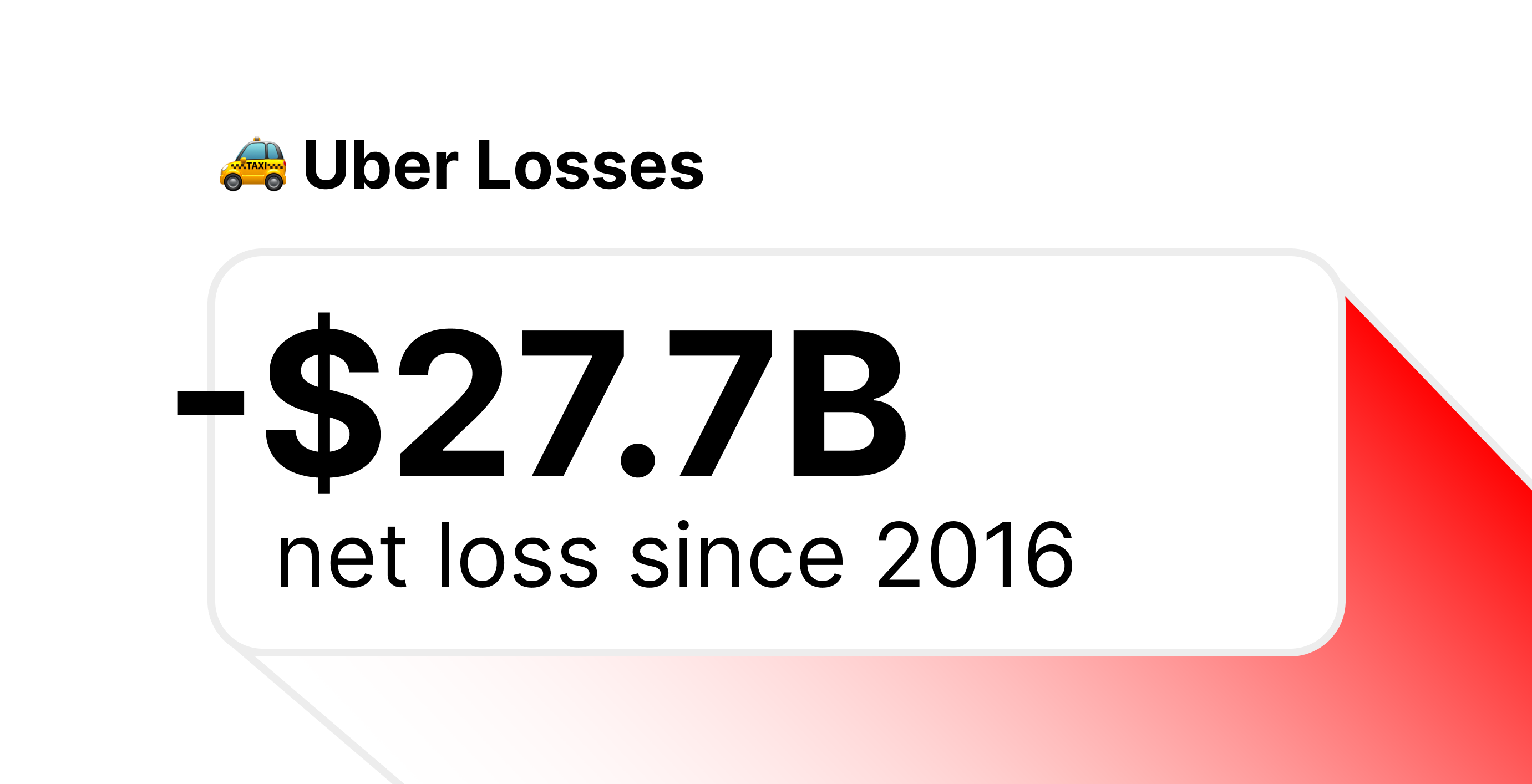Oct 15th 2025 · 9 min read · #ai #anniversary #azure #career #decade #microsoft #work
It’s been ten years since I joined Microsoft, and I’ve made it a point to mark the occasion (almost) every year, so why stop now?
Record Scratch
You might be wondering how I ended up in this situation.
The reasons why someone like me (heavily into tech agnosticism, with a long history of open source involvement and a Mac user, to boot) would want to join Microsoft were unfathomable to some of my friends at the time (and maybe they still are).
But, in short, after a decade and a half in the telco industry I saw an opportunity to be part of the “next big thing” (i.e., hyperscalers). I took it.
It all sort of started a year before I joined, because even though I had been discreetly poked at by acquaintances working there a while before I hadn’t really realized how much of a culture shift was about to play out until this came about:
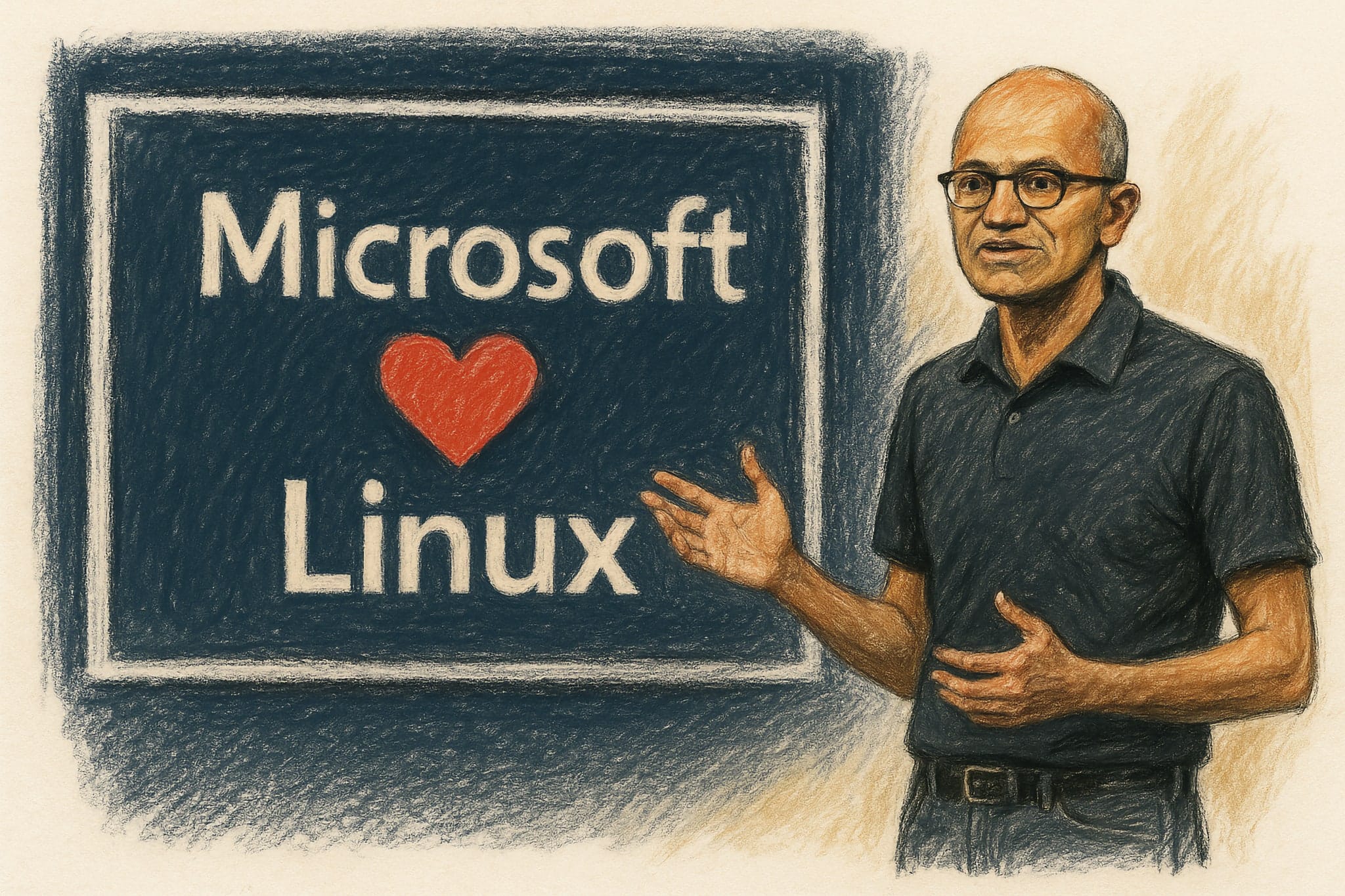 The original slide is gone, but here's a re-creation
The original slide is gone, but here's a re-creation
A year later, I took the plunge.
And I’m actually surprised that I ended up staying at Microsoft this long. It isn’t about the multiple rounds of layoffs over recent times (which I’ve been unnervingly close to), but because I was expecting cloud adoption to be your typical five-year paradigm shift.
In short, things just kept working out at Microsoft, and, most importantly, I got to witness a lot more than just the one paradigm shift…
The Eras Tour
Looking back over the past decade, I tend to break it down into five distinct eras:
- Azure and its first set of major rollouts (years of progressive enterprise adoption, data center expansion, new services and features, etc.)
- Cloud analytics / big data and machine learning (coming to the fore as people started building more sophisticated things atop Azure)
- Teams (the biggest legacy from COVID, which requires no explanation)
- A strategic detour and return to my telco roots (which was unceremoniously brought to an end by the shuttering of Azure for Operators)
- The sea change brought upon by generative AI (which to a certain degree de-emphasized Azure and shifted back the focus to end-user productivity)
All of these brought change. Not just the tech I had to deal with and learn (and often teach), but also the people I worked directly with daily, the local or global territories I needed to cover, and, of course, work-life balance. That seldom changed for the better.
I’m lucky that I’ve had no issues (re)learning tech or changing focus as needs arose (I am used to juggling security, deep ML, program management, DevOps, data governance, IoT and the intricacies of Python AI frameworks in the course of a single day).
But I am not overly happy about having become a sort of free-for-all technology generalist when my heart has always been in building things.
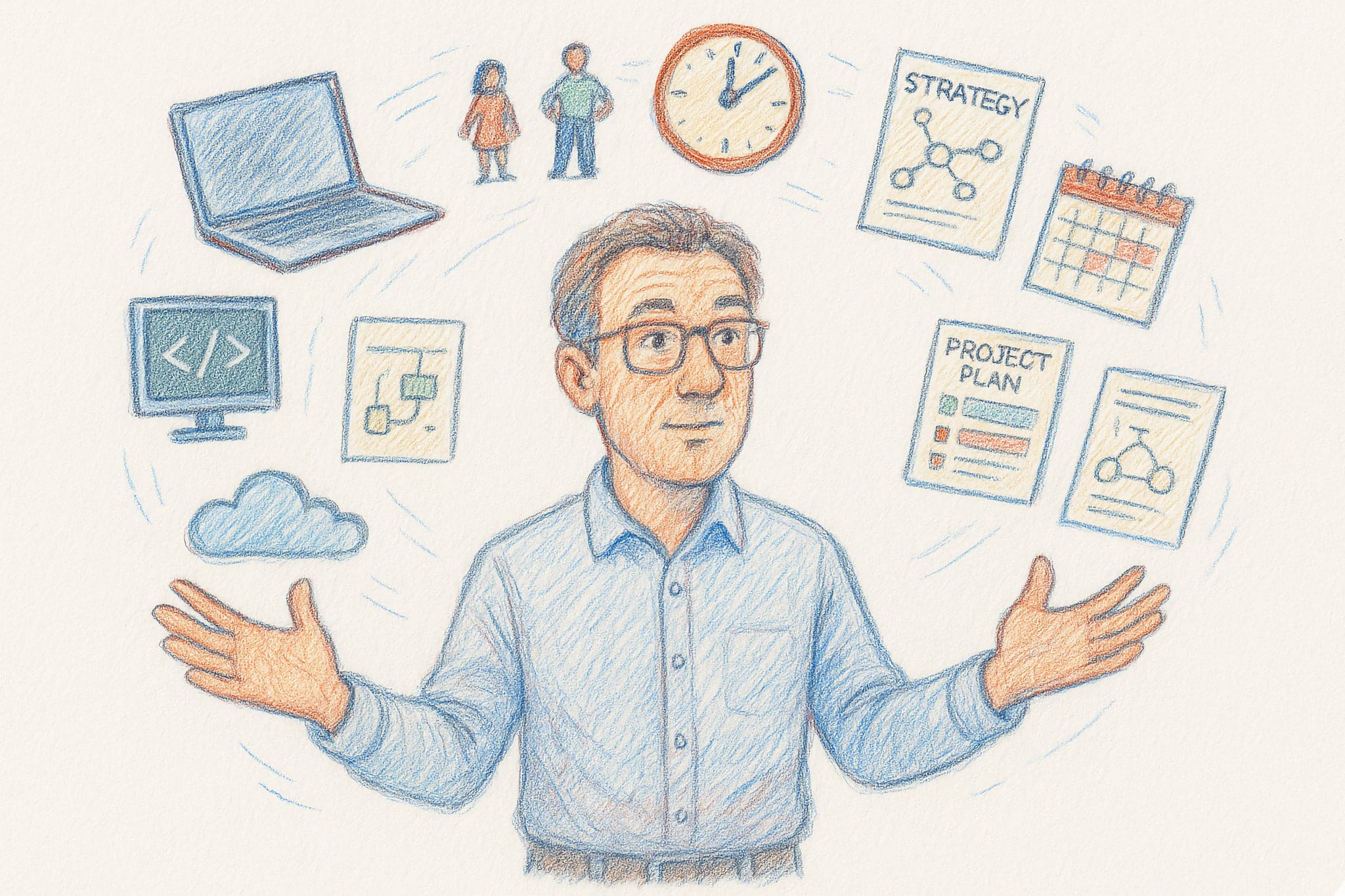 Forever trapped between engineering and business
Forever trapped between engineering and business
Also, my current role and title (Principal Program Architect) has a significant drawback: it sidelines the degree of hands-on management experience that comes with decades of wrangling people and processes inside and outside the company, so trying to explain to “civilians” what I do makes for awkward dinner conversation.
And yes, I’ve come to realize that both engineering organizations and the job market at large look dimly upon people with an “architect” title.
Believe me, the term “architecture astronaut” does not, paradoxically, exist in a void. There are far too many people out there who will battle to the death over conceptual diagrams without writing a single line of code or, most importantly, actually talking to people and trying to understand what needs doing.
I get the bias, and don’t let myself get defined by my role–but always by what I do.
Flashbacks
All in all, the situation today feels very similar to what I experienced at Vodafone in 2008-2009. The industry is going through a paradigm shift (and yes, a bubble), the shape of the business is undergoing quick and fundamental changes, and organizations are trying to keep up. But unlike Vodafone, Microsoft isn’t caught up in the past and isn’t shy of doing deep organizational changes that actually mean something.
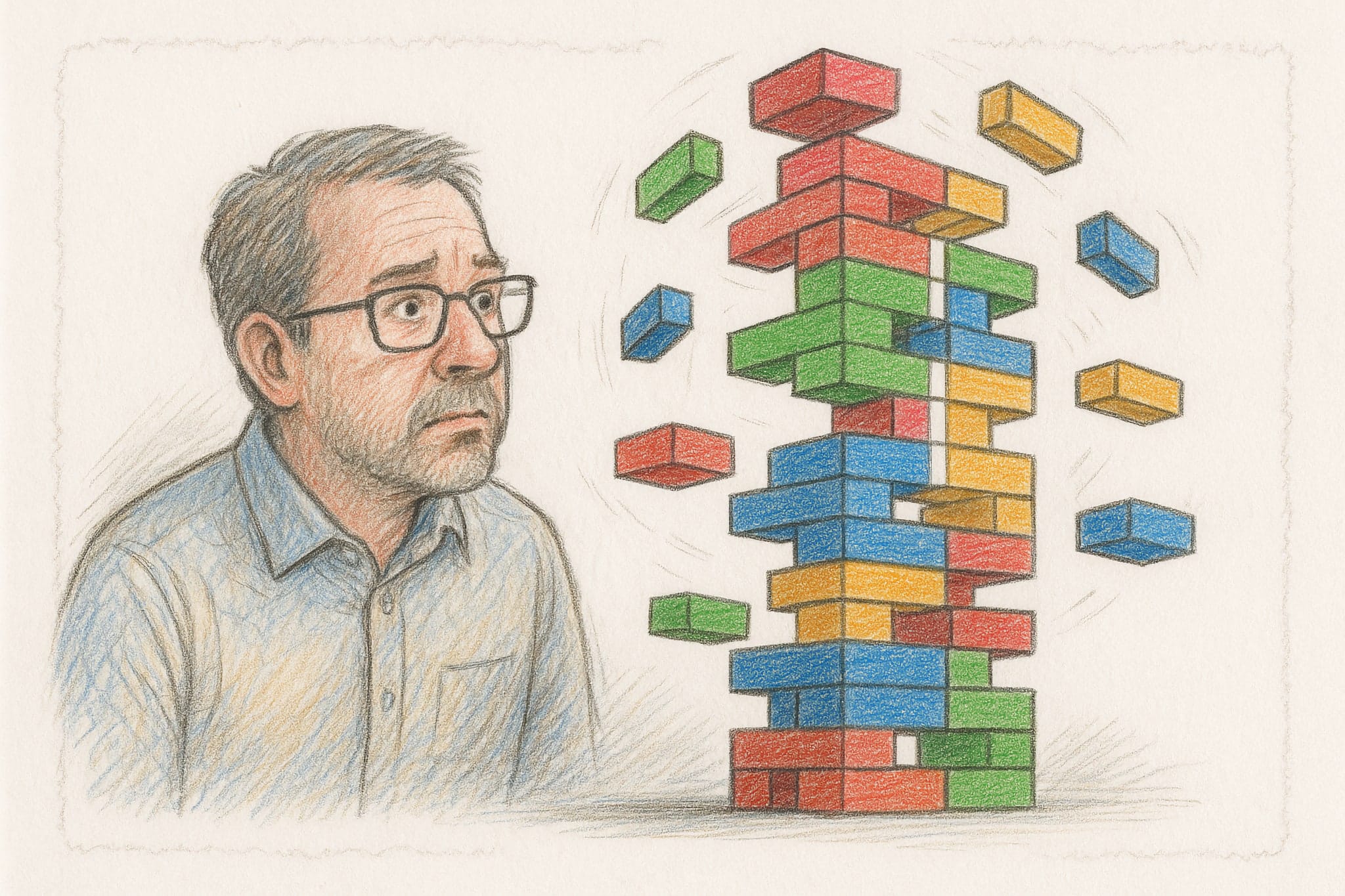 The company pretty much changes in front of your eyes, every quarter at least
The company pretty much changes in front of your eyes, every quarter at least
In fact, the biggest lesson I learned over the past decade is that adapting to change is a critical skill, since Microsoft relentlessly adapts and plans for constant change. Every year everything changes (if not every quarter), so unlike the pre-2010 days I am neither bored nor feeling the strategy is fundamentally wrong (people who remember Vodafone 360 will get this).
I call it the “Microserfs effect” (even though the Microsoft of today has little to do with the book’s) in the sense that people outside Microsoft will likely never get it.
Work Context
I’ve been back at Industry Solutions (Microsoft Consulting, if you’ve been around long enough) for a year now. It’s been gratifying to be back working with people I know and in a part of the organization that keeps ticking along with a clear focus (as reorgs allow, of course). Building things for customers is the next best thing to building things for myself.
At the same time, I had until recently zero engagement with Portugal (other than, you know, living here), and spent almost seven years working almost exclusively with companies abroad.
It can be somewhat isolating: I seldom visit the local office (there are now far fewer people there in general, let alone people I relate to), I have had no Portuguese customers (other than occasional contact with offshoots of the multinationals I work with), and the local market can feel infinitesimally small when compared to my usual context.
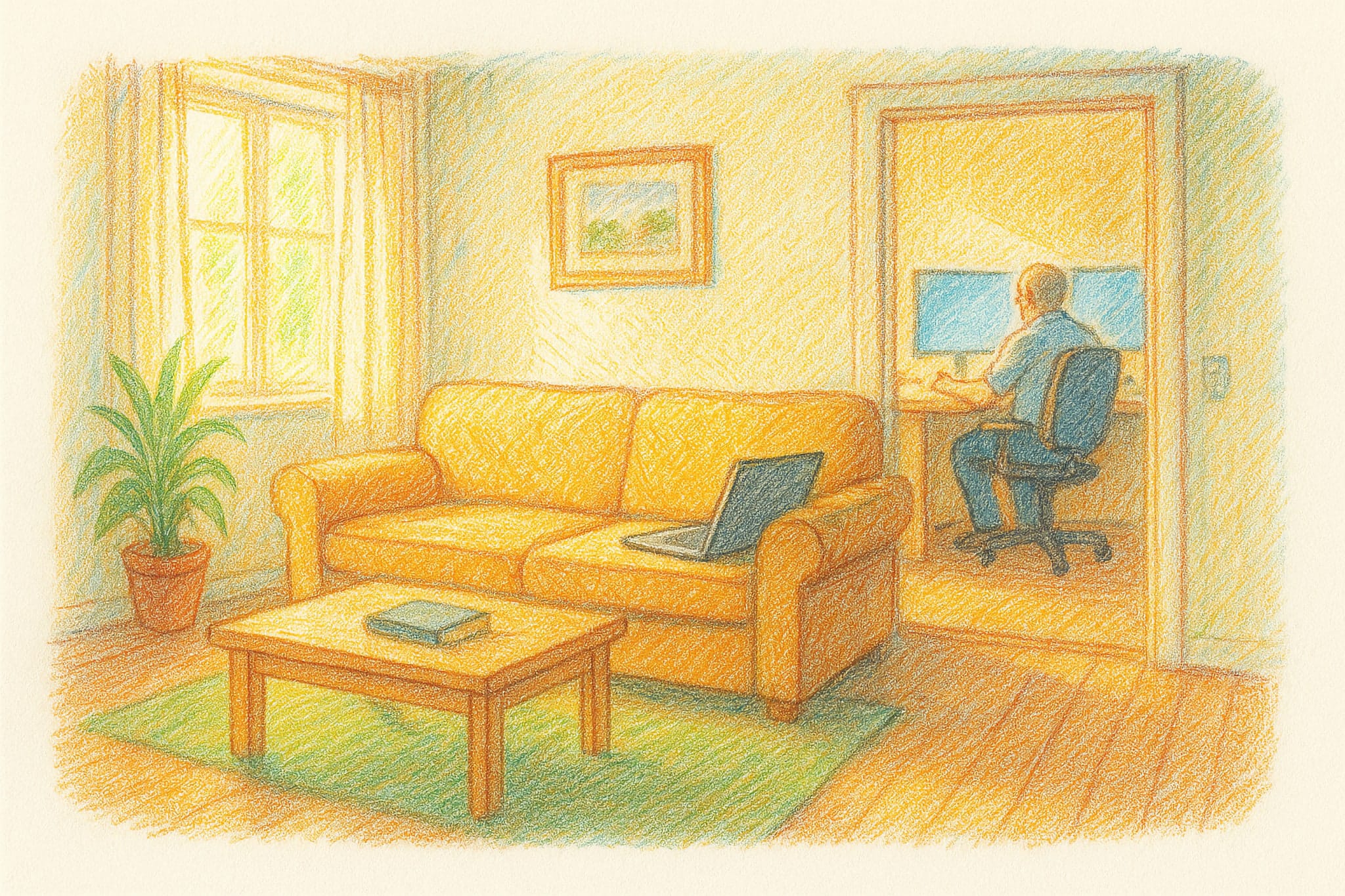 It's made for some nice, "quiet" times when I can't even enjoy the house
It's made for some nice, "quiet" times when I can't even enjoy the house
But I have few regrets about having “left” Portugal seven years ago, since I couldn’t have learned as much otherwise.
And yet, having spent some of the best moments of my career building things in Portugal (at INESC, Telecel and later Portugal Telecom), I feel like I should give back in some way, and that has been on my mind for years.
I’ve had the good fortune of doing some investment and technical advisory, and that seems like the logical way to sanity check any “return” to Portugal, even if it’s hard to find things that would satisfy my sense of purpose.
The Bubble
It’s coming. I have no doubts that AI is here to stay and that it is a productivity booster if you know how to use it, but the misconceptions that it is going to write everyone’s code, replace people (in any role) and that the technology we have today will evolve at the same pace as Moore’s Law are going to hit a brick wall sometime soon.
And it’s gonna be painful.
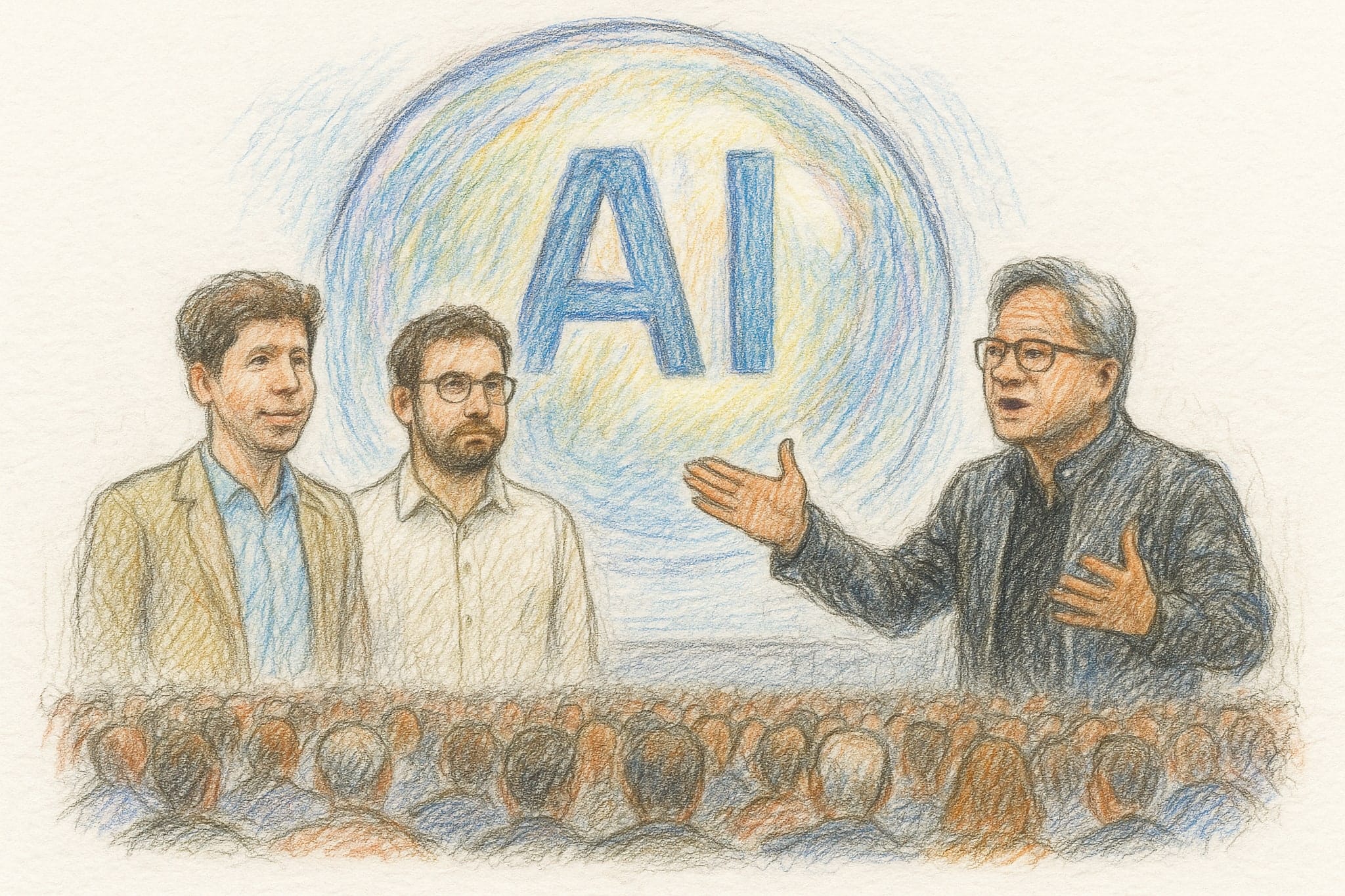 We live in the age of the vaporware keynote
We live in the age of the vaporware keynote
However, that is a far cry from thinking the market will implode like in 2008.
I certainly hope it doesn’t (I have held on to a decent, if not life-changing, amount of stocks, so there is a little selfish worry in this paragraph), but I would be much more worried if I worked at, say, NVIDIA, since any changes in performance and efficiency are much more likely to come from software (model design, tailored solutions and integration improvements) than hardware at this point, no matter how much bling you add.
But I’m squarely in the corner of those who don’t expect AGI to emerge from current technology (as should be obvious to anyone who understands we’re still fundamentally using brute force compute), and having that realization alone become apparent to everyone might be enough to burst something.
Landscape
Like I wrote last year, geopolitical and economic concerns aren’t helping, and although I’m seeing a bit of backpedaling towards an AI-centric future, things like tariffs and continued uncertainty in economic conditions are driving companies to cost-cutting and layoffs.
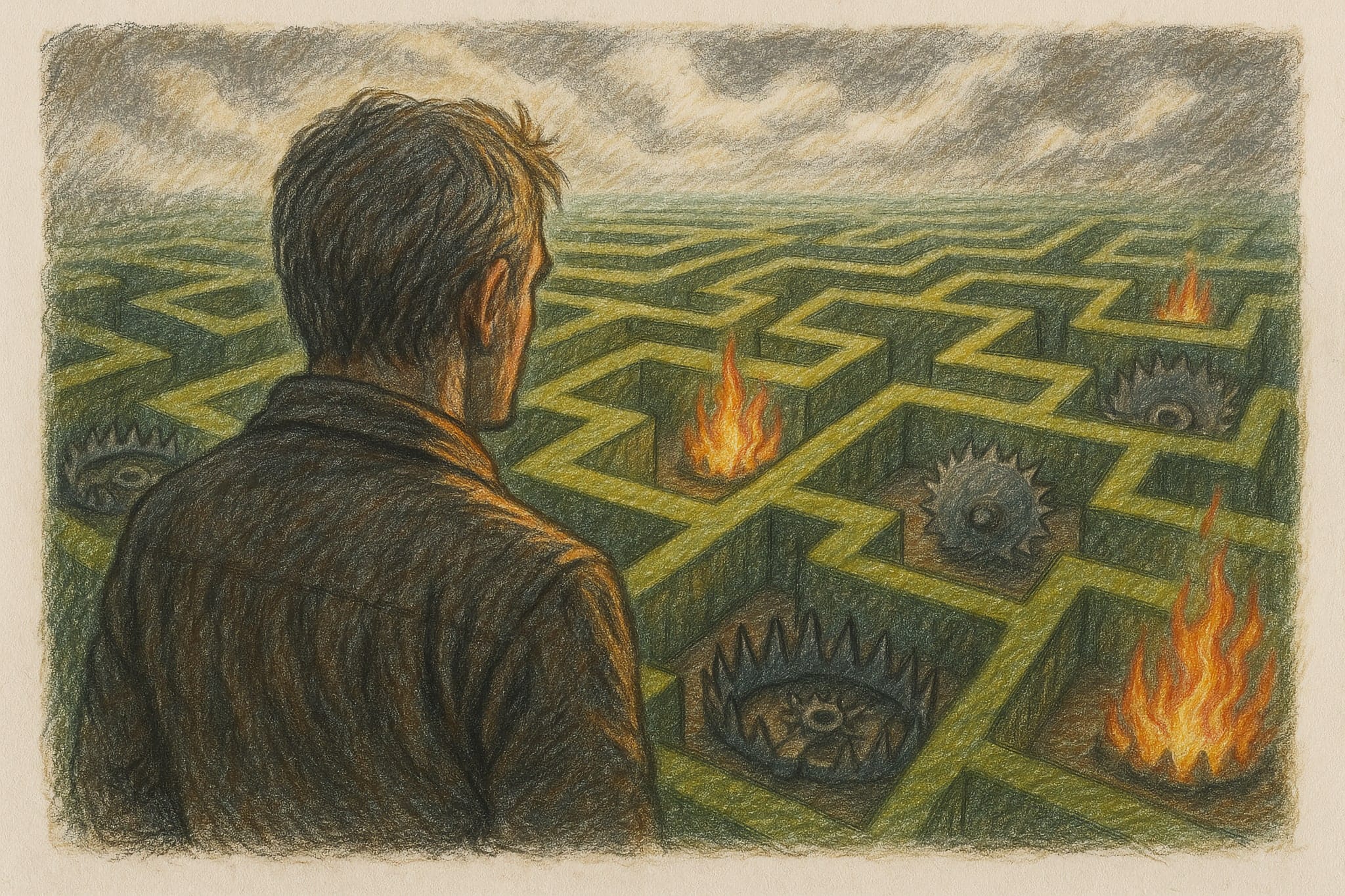 It's hard to find a path forward
It's hard to find a path forward
Given all I’ve gone through over the past few years, I do worry about my job irrespective of personal merit and impact–in fact, I think that is the key change I’ve felt over the past few years in the technology industry at large.
Many conventional companies have done big layoffs in IT (with or without shifts to outsourcing), and more focused engineering organizations have reduced hiring. And, again, I hear grumblings of increased ageism and ghosting as HR recruiting teams are themselves downsized.
It’s not just about AI–more pragmatically, it’s about reducing risk exposure to future staffing costs.
Personal Life
After a year of slow self-conditioning, fine-tuning some personal habits and a minor surgery, I have reached a sort of equilibrium where my immediate personal goals feel broadly settled and I prioritize health and wellbeing above work.
I haven’t stopped wanting to achieve more and doing more interesting and challenging things than what I have on my plate now, but those are things I don’t necessarily control and, ultimately, less important than keeping sharp and active on a daily basis.
As a result, my daily work breaks have mostly turned into exercise breaks of some sort, which has significantly improved my mood. Sadly that hasn’t really contributed to much of a face-to-face social life given that, again, working across EMEA has completely wrecked my lunch times and thus most social opportunities to meet with people in Lisbon.
That is probably the single most frustrating thing about my current role, since I don’t mind working (much) later than my CET-resident peers and yet am usually the odd one out schedule-wise when work meetings arise–so I end up conforming and skipping lunch to have meetings that could probably have been an email.
But I’ve still managed to consistently set aside time for my own projects and hobbies, and the past few years of tinkering with industrial hardware and electronics has been fun, even if a chunk of it has been about shoving machine learning into ever more powerful SBCs.
Designing things in CAD or building stuff with my own hands are now the things I find most rewarding, and I still get to do some low-level coding now and then.
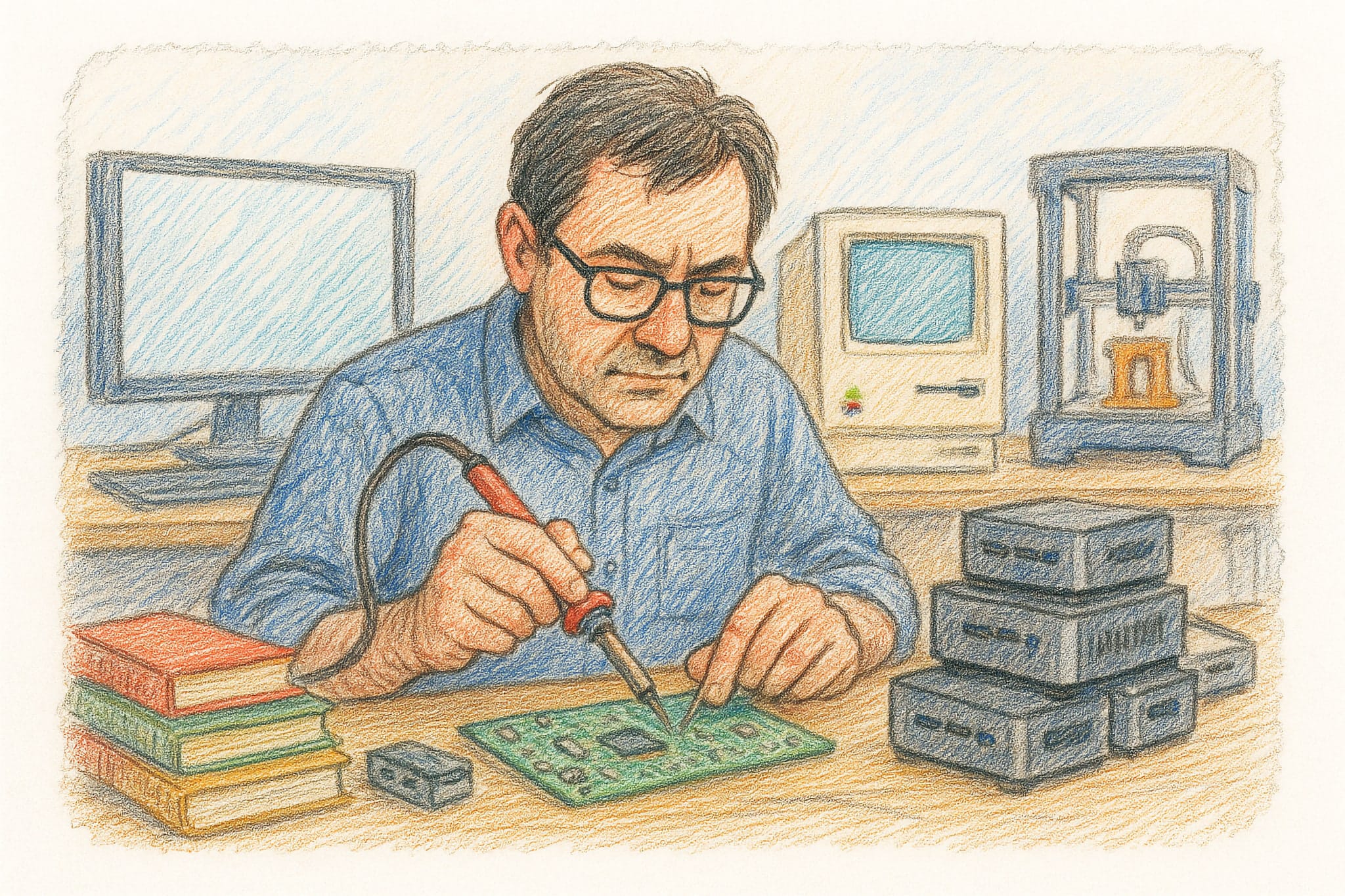 Hardware is still much more fun than software for me
Hardware is still much more fun than software for me
Who knows, maybe I’ll find a way to get back into building products, given time.
.png)


